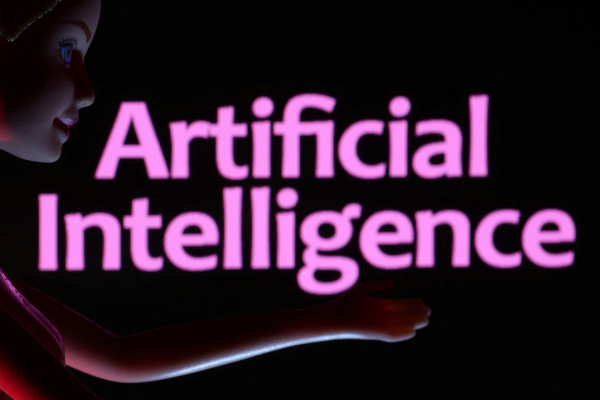Human centred business transformation

Dan Truman at dentsu explains why a human-centric approach is critical to successful and sustainable business transformation
Today’s business climate is more competitive than ever before. Against a backdrop of rising consumer expectations, challenging economic conditions and ongoing skills shortages, business leaders must do what they can to stand out.
Add to this, the increasing pressure to keep up when it comes to innovation and investment in modern technologies, such as machine learning and artificial intelligence, and it’s easy to see why many are choosing to undertake transformation projects.
However, whilst many organisations draw up detailed roadmaps, when it comes to business transformation, a staggering 70% are still failing to achieve their goals. This is hardly surprising, given that recent research discovered that just half (51%) of businesses are exploiting customer and business insights.
Too many transformation strategies today fail to hit the mark because they only focus on operational changes and cost efficiencies. In order to be successful, businesses should instead prioritise what is best for the human experience, whether that’s improvements to services, greater personalisation or meeting the evolving expectations of society.
It’s clear that businesses need to be thinking more creatively to identify the whitespace for uncommon growth in our saturated marketplace. Focusing on the people behind the transformation is the only way to create genuine long-term sustainable growth.
Leveraging human data
All too often, a lack of human understanding is one of the main barriers to growth. Without this, it is impossible for businesses to carve out the unique value that their key audiences cannot find anywhere else. When leaders better understand their customers and employees, they better understand their market position.
The data-driven insights into human behaviour can help businesses to predict future trends, strategise more effectively, and be more proactive in catering to their audience’s needs. Utilising these insights more widely could help to unlock potential areas for uncommon growth, with 79% of CMOs already believing marketing is a key driver of business transformation.
Luckily, the ongoing convergence of AI and machine learning is making it easier to leverage these insights. In fact, the level of data-driven, real-time visibility that these technologies are bringing to the table, is enabling business leaders to make more strategic business transformation decisions than ever before.
However, it’s important to recognise that business transformation is an ongoing process. It is a journey, in which businesses strive to better understand their audience’s needs, rather than the final destination. In order to successfully leverage ‘human’ data to inform strategies, companies must continually assess the audience datasets they have available, evaluate the technology needed to aggregate customer and employee datasets and define how to manage access to the AI-enabled outputs.
Creating the right culture
As well as establishing a strong understanding of their audiences, business leaders hoping to drive long-lasting growth from business transformation must find a way to incorporate social good. People-centric strategies that are hinged on creating positive human impact will outperform those that are focused on profit margins.
One business principle we’re proud to be adopting is ‘Sanpo Yoshi’, or ‘three-way satisfaction’. This concept was founded by a group of Japanese merchants, the Omi Shonin, who believed that to reap true profit, there needed to be benefits for the seller, for the buyer and for the local communities. The concept is around 400 years old but remains particularly relevant today. Essentially, it embodies the idea that purpose drives profit when all stakeholders are aligned in pursuit of the same vision.
Social and cultural shifts do not happen overnight but doing what’s right for people – whether its employees, customers or society at large – is really the only way that brands can have a sustainable model that meets the needs of society today and into the future.
As transformation strategies evolve, firms need to hold themselves accountable to broader communities. By embedding metrics around social impact alongside traditional business KPIs, leaders ensure that transformation goals are met in a way that benefits society at large.
Incorporating social responsibility into wider business transformation strategy takes effort, time, and a willingness to consider the ‘why’. Business leaders should start with an inside-out approach, interrogating the purpose of the business at a fundamental level.
Collecting and monitoring data on this and measuring progress is critical to understanding where investments need to be made. Staying true to this original vision will make it easier to build a transparent, authentic and trustworthy brand.
Breaking the status quo
In such an uncertain business climate, it can be difficult to implement change. Understandably, the instinctual response is to stick with what you know. However, an overcommitment to the status quo can prevent progress further down the line and become a roadblock for growth.
Businesses today need to foster cultures of agile experimentation. Transformation cannot succeed if operating models are too rigid. By building and piloting agile structures, companies can test, refine, and adapt as they grow, which is key to resilience in a fast-evolving market. These pilot programmes serve as a proving ground to identify what works best, giving teams a low-risk environment to innovate and optimise before broader rollout.
With almost 2 in 3 businesses believing that at least half of their future revenue will come from offerings that are not yet in their portfolio, significant change is on the horizon. Successful and sustainable business transformation is the key to standing out in today’s saturated market.
Taking a holistic view which prioritises the human experience can help businesses to unlock uncommon growth opportunities and make long-lasting change possible. Today’s leaders must leverage data insights, prioritise human understanding and create a culture of social responsibility and agility to maximise business transformation success.
Dan Truman is Group Chief Strategy Officer, UK&I, at dentsu
Main image courtesy of iStockPhoto.com and ALotOfPeople

Business Reporter Team
Most Viewed
Winston House, 3rd Floor, Units 306-309, 2-4 Dollis Park, London, N3 1HF
23-29 Hendon Lane, London, N3 1RT
020 8349 4363
© 2025, Lyonsdown Limited. Business Reporter® is a registered trademark of Lyonsdown Ltd. VAT registration number: 830519543





